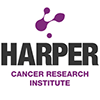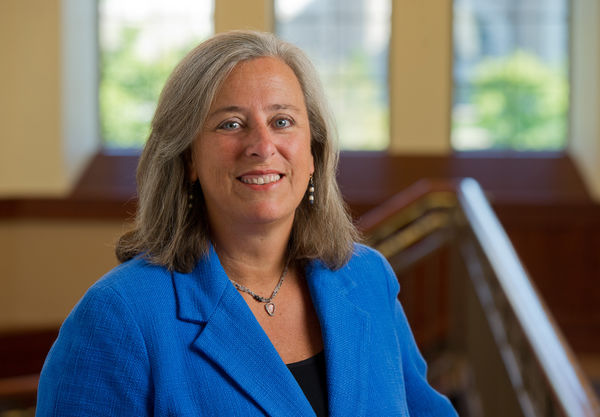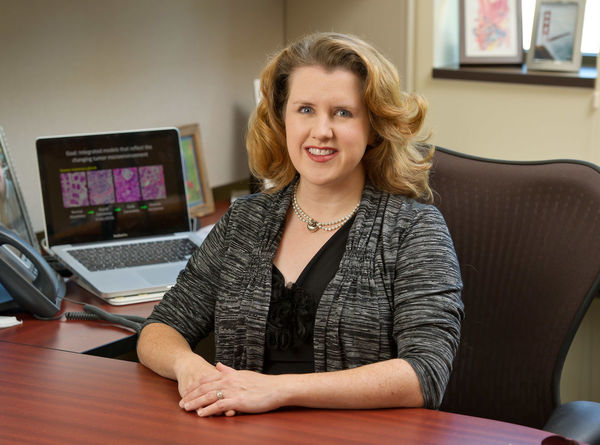
The $300,000 award will fund early career faculty projects over a span of four years
The Harper Cancer Research Institute (HCRI) has received a $300,000 Institutional Research Grant (IRG) from the American Cancer Society (ACS), which is a renewal of the IRG grant from 2014. The ACS also renewed 12 other IRGs for centers, institutes, and medical schools around the country.
With the IRG funds, as well as additional support provided by the Colleges of Science and Engineering at the University of Notre Dame, the HCRI will again host an internal grant competition for Notre Dame faculty, with two $30,000 grants available per competition cycle.
 M. Sharon Stack
M. Sharon Stack
M. Sharon Stack, Kleiderer-Pezold Professor of Biochemistry and Ann F. Dunne Elizabeth Riley Director of the HCRI, said, “We will use this funding to support six different competition cycles, or 12 internal grants, over the next three years. The goal is to provide early career faculty with the seed funding they need to jump-start their research programs and successfully apply for larger grants. This will allow our researchers to be even more competitive on a national stage.”
This internal grant competition, which began in 2014, has helped several Notre Dame faculty members advance their research programs. For example, Laurie Littlepage, assistant professor of chemistry and biochemistry, used previous funding from the IRG program to support her study of endocrine therapy-resistant breast cancer. Endocrine therapies are used to stop estrogen-receptor-positive tumors, or tumors that use estrogen to grow. However, this type of cancer can develop resistance over time to these treatments. In fact, about 70 percent of breast tumors are estrogen-receptor-positive and of those patients with this type of tumor, the ones who die will have developed resistance to their endocrine therapies.
 Laurie Littlepage
Laurie Littlepage
“The IRG-funded internal grant competition provided the support I needed to collect initial data on the specific role of oncogene ZNF217, a gene that, in certain circumstances, can transform a cell into a tumor cell in breast cancer. We found that when a lot of this gene was expressed, resistance to tamoxifen – a commonly prescribed endocrine therapy – developed,” said Littlepage. “This pilot study allowed my lab to compile essential information, which ultimately helped me receive a Research Scholar Grant from the ACS for nearly $800,000 to continue this work.”
The ACS is the largest non-government, not-for-profit funding source of cancer research in the United States, with 99 percent of funding coming from personal gifts, corporate donations, and more. One way the ACS raises these funds is through a program supported by Mike Brey, the Glen and Stacey Murphy Head Men’s Basketball Coach at Notre Dame. When discussing the program, Brey said, “I am so thrilled that through our Coaches vs. Cancer program here in Michiana we have been able to support the ACS. Through these programs, the ACS has funded two million dollars in grants at the HCRI.”
Investigators in the Harper Cancer Research Institute (HCRI) are dedicated to conducting innovative and integrative research that confronts the complex challenges of cancer. From common malignancies to rare and recalcitrant cancers, researchers at the University of Notre Dame and Indiana University School of Medicine – South Bend are united in multi-disciplinary teams with a common goal: to increase the survival of all patients diagnosed with cancer.
Originally published by at research.nd.edu on December 12, 2017.